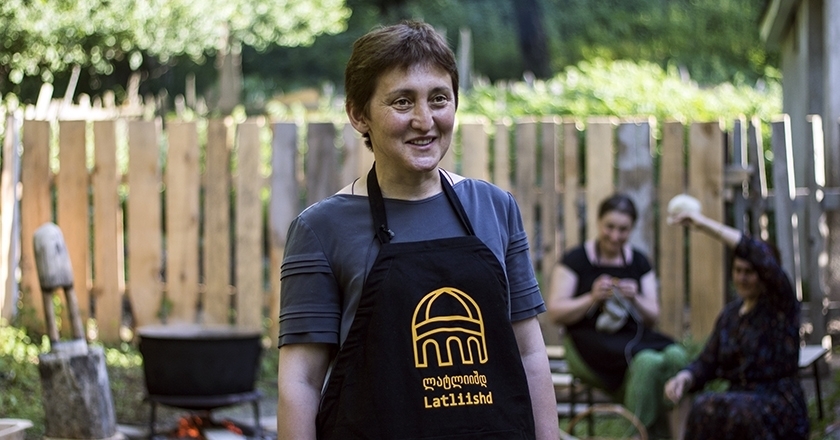Madona, Nano, and Mziana are certified teachers in Latali public school. Tamta is an accountant. Nino works as an assistant to the mayor’s representative in the village.
Madona was a manager in Restaurant „Lile,“ in the center of Mestia. „Lile,“ a place with delicious Svanetian cuisine, live music, and good service, was a popular destination before the pandemic among both Georgian and international visitors.
The restaurant used to be packed with visitors. Twenty people were working there. After the coronavirus spread, borders were closed, etc., restaurants started working on takeaways only. Sometimes we did not even have an order. Only cooks, two people of those twenty are still working there - Madona says.
The pandemic left many women jobless. Women living in Latali were employed as cooks and cleaners in local guesthouses and restaurants.
Statistics show the coronavirus left more than 1000 residents of Mestia municipality without their jobs. In addition, almost 300 guesthouses were closed for a year.
Many employed women only live according to the routine, withdrawing them from the social process even further. There was no enterprise in whole Svaneti, where women could learn handicraft, work and create competitive products to sell.“ – Madona states their goal is to preserve traditional technologies and experience, help women engage in the social process.
The traditional method of producing Svanetian hats and salt has been acknowledged as a non-material cultural heritage since 2015. In April, the government awarded the same status to soap making tradition, thus indicating that it needs to be preserved.
When Care International, with aid from the EU ENPARD program, announced the grant application for economic development, „Latliishd“ won a grant of 35000 Laris. In addition, the Eparchy of Mestia and Upper Svaneti provided the organization with working space.
The tradition of Svanetian soap making is ancient. It’s made by mixing ash with lard or tallow. First, beech ashes should be gathered in a cylindrical basket. Then, gradually add warm water drenches ash; squeezed water and a small amount of ash pour down to a pot below.
This ashy water is called heram. Heram is put in a cauldron and boiled until only a thick mass remains. Then lard or tallow should be added. Proper dosage is crucial; otherwise, soap becomes crumbly and leaves white spots during washing. This new mixture should be boiled anew until it reaches a dough-like texture.
Soap should be put in molded and wrapped in a towel while it’s still warm. After tamping and hardening, soap is put down on a wooden board to dry out. The process is labor-consuming and takes 5-8 days from start to finish. Usually, several households would boil the soap supply for the next 3-4 months together. Older women who still traditionally make soap think it is the best remedy against dandruff and hair loss.
„Latliishd“ offers a possibility to learn handicraft to women living in all 17 communities of Mestia municipality. In addition to that, the organization provides them with their transportation because there is no public transport in Upper Svaneti.
Once social enterprise starts selling the product to generate income, they plan to start the business of stitching old traditional carpets.






